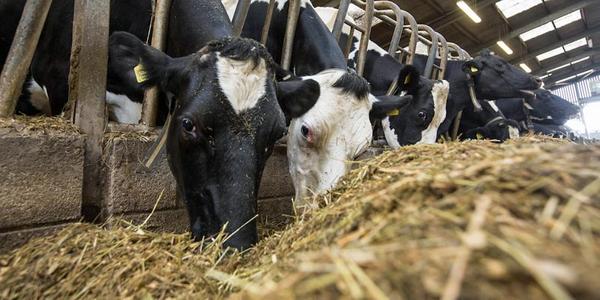Members encouraged to share APHA survey on feed silos

A key industry survey on feed silos has been reissued to gather supportive information to aid Great Britain’s attempt to obtain negligible BSE risk status, following a Livestock Chain Advisory Group meeting held on 23 June.
Last year the survey was launched by the Animal and Plant Health Agency (APHA) with industry support, however, the information currently held is insufficient to undertake robust modelling and has been reissued to gather more data on the use of feed silos.
Value to the British beef industry
The APHA needs this information to prepare an application to the World Organisation for Animal Health (WOAH) for BSE negligible risk status for submission in 2024.
A change from the current "controlled risk" to "negligible risk" status offers significant benefits and value for the British beef industry in terms of trade and access to new markets for the export of British beef and feed products.
AIC has been asked to share this survey with Members in the Feed sector, who are asked to distribute it to all contacts in the cattle farming sector, encouraging them to take a few minutes to answer survey questions via the link below.
More information
On behalf of the Department for Environment, Food and Rural Affairs (Defra), Scottish Government, and Welsh Government, the APHA is asking all active cattle farmers to participate in a short survey following the recent case of bovine spongiform encephalopathy (BSE or mad cow disease) detected in England in 2021 [PDF].
This case was potentially linked to residual contaminated feed from a silo that had been in use since the early 1980s and was the most likely source of infection.
The APHA survey seeks to establish whether farmers still use a silo, or any other container storing loose concentrated feedstuffs, that predates 1 August 1996 when the reinforced ban on the feeding of processed animal protein to farmed animals was introduced.
The aim of this survey is to gather supportive information to help Great Britain’s attempt to obtain negligible BSE risk status, as recognised by the World Organisation for Animal Health.
This will help facilitate trade and access new markets for the export of British beef and feed products. Great Britain currently has a controlled BSE risk status.
To apply for negligible BSE risk status, a country must demonstrate effective BSE surveillance and adequate mitigation measures, to prevent the occurrence of further cases of BSE.

